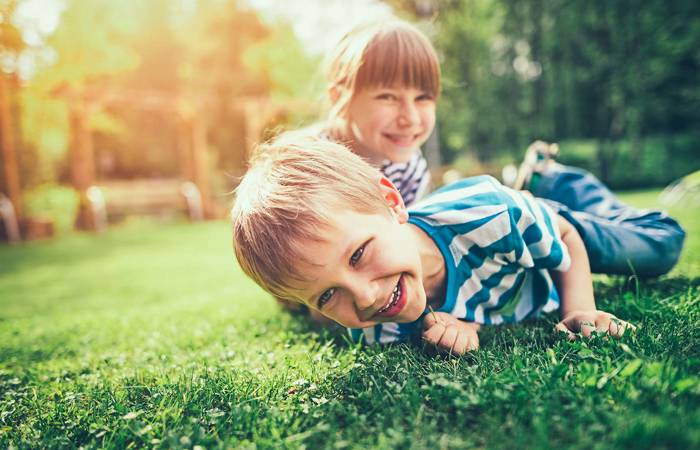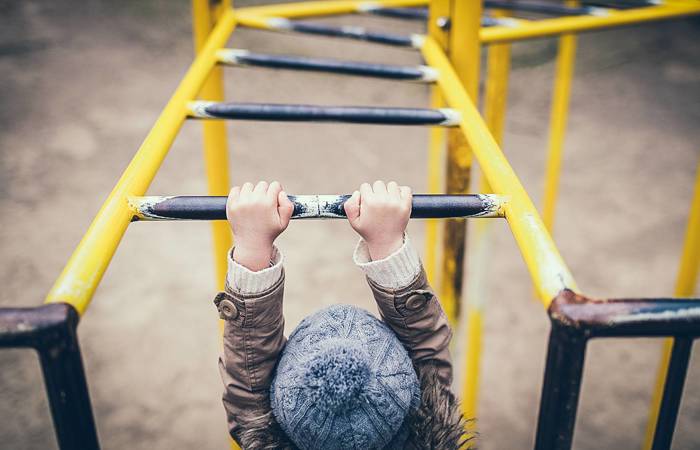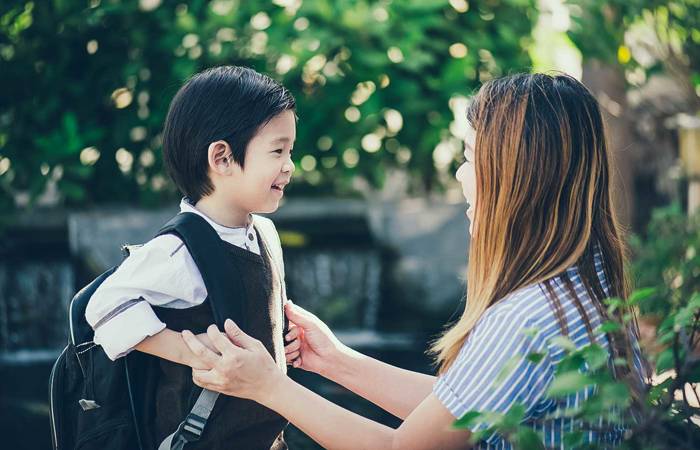Like what you see?
Sign up to receive more free parenting advice.
Thank you for subscribing to our newsletter!
Early Learning

Credit: iStock.com/Ondine32
Playgroups aren’t just fun for small children and a good excuse to get parents out of the house for an hour or two (away from the piles of laundry!).
From three national data collections over seven years, Playgroups Australia and Telethon Kids Institute have found they not only provide a development opportunity for children on their pathway to school, but they also provide an opportunity for parents.
“The main finding is that those kids that attend playgroups seem to be doing developmentally better across the board than their peers who don’t attend,” says Head of Child Health Development and Education at Telethon Kids, Dr Sally Brinkman.
In fact, the most recent report released this year found that Australian children who have not attended playgroup are over 1.7 times more likely to be developmentally vulnerable on one or more domain of the Australian Early Development Census (AEDC) than their peers who attended playgroup.
Meaning, those who attend playgroup in their early years are more prepared and ready to learn when they start school.
How playgroups help parents
Another key finding is the positive impact playgroups have on parents and carers who attend with their children.
“Playgroups give parents an opportunity to talk about their children’s development with other parents and it provides a gauge for how their child is doing developmentally compared to the other children,” explains Dr Brinkman.
“There is also access to social support, resources and linkage to other local services.
“Finally, playgroups are a space where parents can learn how to play with their children in an age appropriate way to meet their child’s developmental needs.
“Getting that stronger interaction between the parent and child and teaching parents how to support their child’s development and giving them confidence in how to do that is a real benefit of playgroups for both the parent and child.”
The report also found that one in three children across Australia attend playgroups, however, Dr Brinkman notes that membership for playgroups is reducing.
“Due to both parents working full time, parents don’t have the time to take their child to a playgroup,” she says.
“Considering the report demonstrates positive outcomes for children attending playgroups, parents should be looking at playgroup attendance and participation seriously.”
Getting that stronger interaction between the parent and child and teaching parents how to support their child’s development and giving them confidence in how to do that is a real benefit of playgroups for both the parent and child.Dr Sally Brinkman
Stay up to date with the latest news and articles from First Five Years
Thank you for subscribing to our newsletter!
Children having less free play
Compared to previous generations, today’s children no longer have the opportunities for free play1.
The 2016 Playgroup Australia report notes the reasons for children engaging in less play are, “demographic changes in family structures, an increased focus on literacy and numeracy, an increase in passive entertainment, as well as the perception of a lack of safe outdoor areas for children to play”.
“The consequences of less free play are across the board,” explains Dr Brinkman.
“Obviously it impacts physical development, but it also impacts social and emotional development.
“Emotional maturity starts at 18 months to two years old for children learning how to self-regulate by understanding how to manage themselves with other children.
“These are really important skills to practise and learn in a safe environment prior to going to school, so that school isn’t so overwhelming.
“And, we know that children learn through play with each other.”
Dr Brinkman also adds that children also learn academic skills through play.
“In terms of language, cognitive and early math skills, we aren’t wanting to teach two and three-year-old children how to read and count, but having early exposure to language through learning how to turn a page in a book, or pre-math concepts like stacking blocks, it makes those children more ready to learn at school entry.
“Exposure to play-based developmentally-appropriate learning that happens at playgroups is really important in preparing them for the school environment.”
“The results we have found are echoed in international studies, children who go to playgroups tend to be developing better,” says Dr Brinkman.
“We expect that it’s a combination of children playing with other children and learning through this play, but also the positive effects playgroups have on parents or carers.”
The 2016 report [https://www.telethonkids.org.au/our-research/reports-and-findings/2016/january/it-takes-a-village-to-raise-a-child--the-influence-and-impact-of-playgroups-across-australia/] notes, “playgroups also have a range of positive effects on parents and caregivers which are likely to translate into better outcomes for children, such as reduced social isolation, improved parenting skills and self-confidence, increased knowledge of relevant community services, and a greater awareness of their child’s needs”.
Quality early learning environments provide excellent play-based programs. Parents are encouraged to get involved in activities and share learning and development with carers. Care is underpinned by the relationships educators build with children and families. Positive relationships assist young children to feel safe and secure, and this is a critical foundation for children feeling confident to explore their environments and to learn.
Playgroups however are different. At playgroup, parents and carers get together with their young children for a couple of hours each week to create social networks, connect and learn through play.
“The major difference between playgroups and day care is the parents,” explains Dr Brinkman.
“When a child goes to day care or preschool, the parents aren’t so involved, and so the opportunities to learn how to support child development through play and activities, and to practise these activities and gain confidence isn’t the same in comparison to the opportunities that playgroups provide.”
Dr Brinkman says a carer's presence also plays an important role in the child’s ability to learn and develop.
“We know that children will learn better and develop when they have people that they love near them,” she says.
“If a child feels safe and they are being watched and looked after by a parent or carer then they are far more likely to explore an activity.
“As they explore and push their own boundaries of understanding, they check back with their parent, understand that they are safe and supported, and then continue to learn and develop."
[1] The Importance of Play in Promoting Healthy Child Development and Maintaining Strong Parent-Child Bonds, 2007, https://pediatrics.aappublications.org/content/119/1/182
Playgroups benefit both the child and parent






